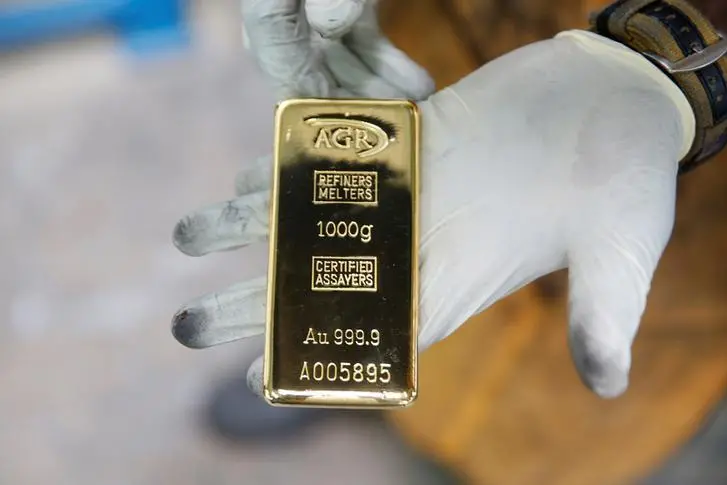PHOTO
Gold prices firmed on Tuesday after falling as much as 5.2% in the previous session, as hopes of more U.S. stimulus measures to cushion the COVID-19 pandemic hit bolstered the precious metal's appeal as an inflation hedge.
Spot gold climbed 1% to $1,880.41 per ounce by 0352 GMT
It fell to $1,849.93, its lowest level since Sept. 28, on Monday after U.S. drugmaker Pfizer Inc said its experimental COVID-19 vaccine was more than 90% effective, based on initial trial results.
U.S. gold futures were up 1.3% at $1,878.90.
Central banks are unlikely to change their accommodative stance in the near to medium term as it will take time for a vaccine deployment and the subsequent pick-up in growth, inflation and labour market, said Lachlan Shaw, head of commodity research at National Australia Bank.
"If inflation expectations pick-up as a result of increased economic activity from the vaccine, that should keep a lid on long U.S. real yields and be a supporting driver for gold."
While optimism over coronavirus vaccine development boosted risk appetite, uncertainties continued to loom over the impact of surging COVID-19 cases in the United States and Europe.
"I still think we've got more stimulus coming and the Fed will keep rates low, while a vaccine is going to provide that reflationary impulse... That's why the markets are still holding onto gold," said Stephen Innes, chief global market strategist at financial services firm Axi.
Dallas Federal Reserve Bank President Robert Kaplan said on Monday the resurgence of COVID-19 poses downside risks to the U.S. economy, while Cleveland Fed President Loretta Mester said the central bank's emergency lending programs are still needed.
Silver rose 0.5% to $24.19 per ounce. Platinum gained 0.4% to $869.61 and palladium was 0.6% higher at $2,492.32.
(Reporting by Eileen Soreng and Nakul Iyer in Bengaluru; Editing by Ramakrishnan M.) ((eileen.soreng@thomsonreuters.com; Within U.S. +1 646 223 8780, Outside U.S. +91 80 6749 6131; Reuters Messaging: eileen.soreng.thomsonreuters.com@reuters.net))





















